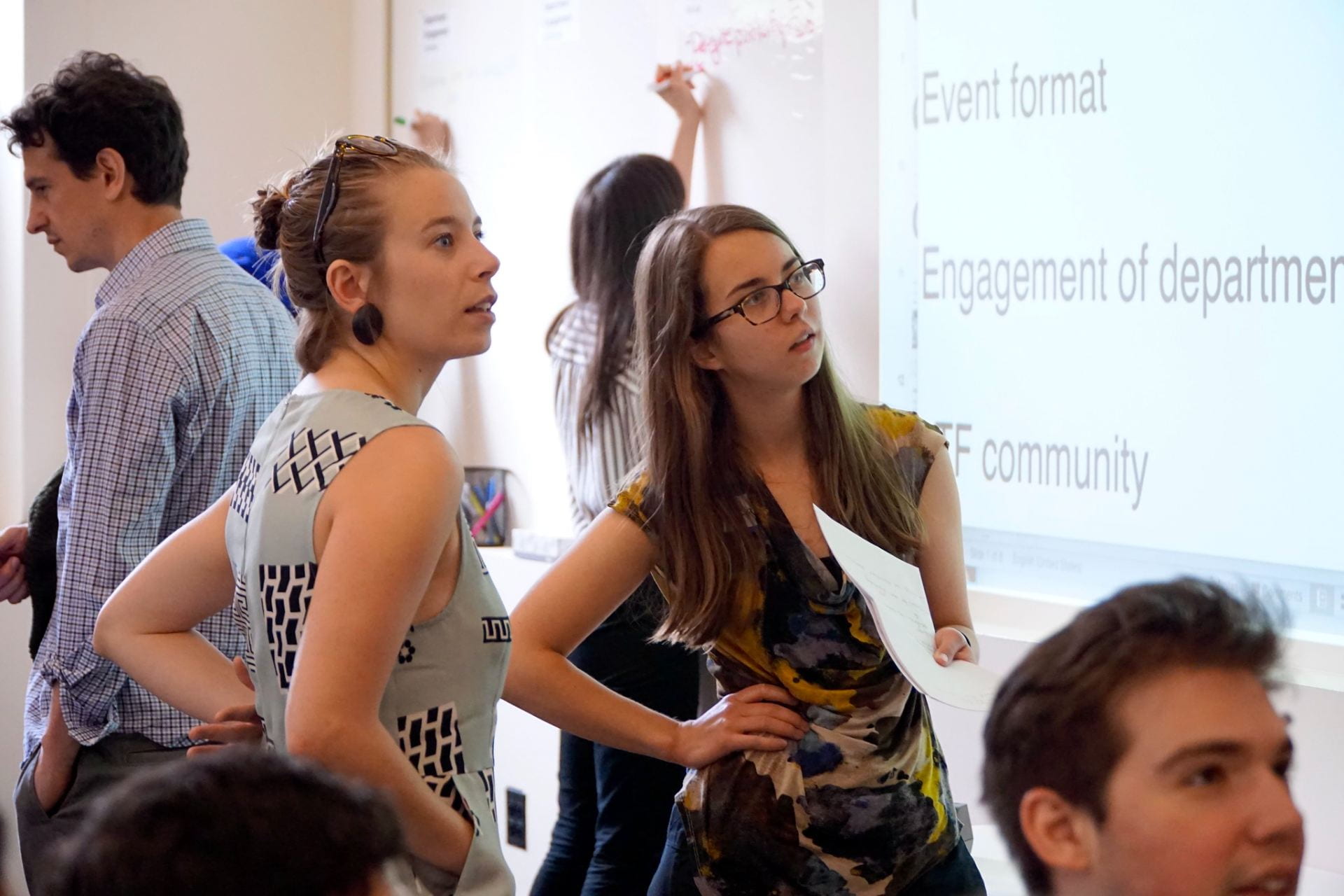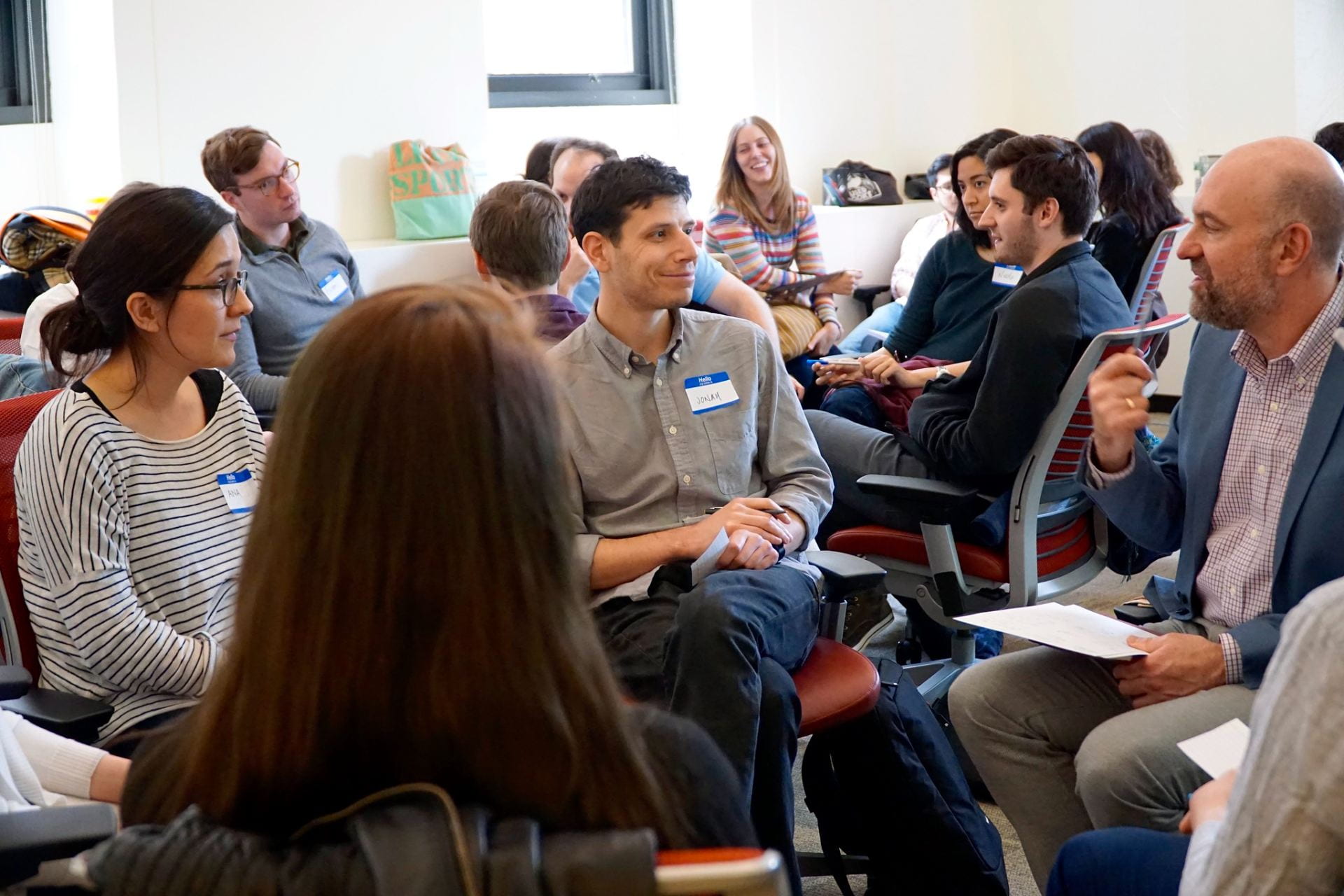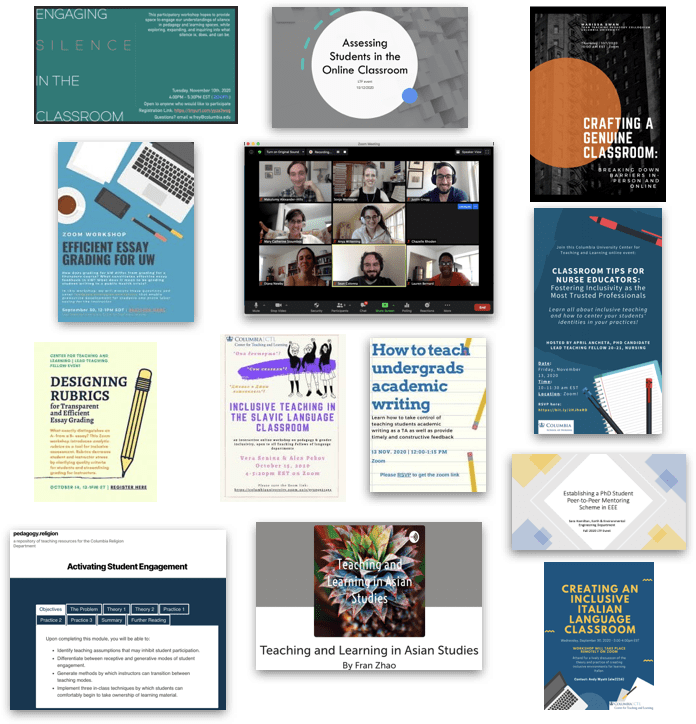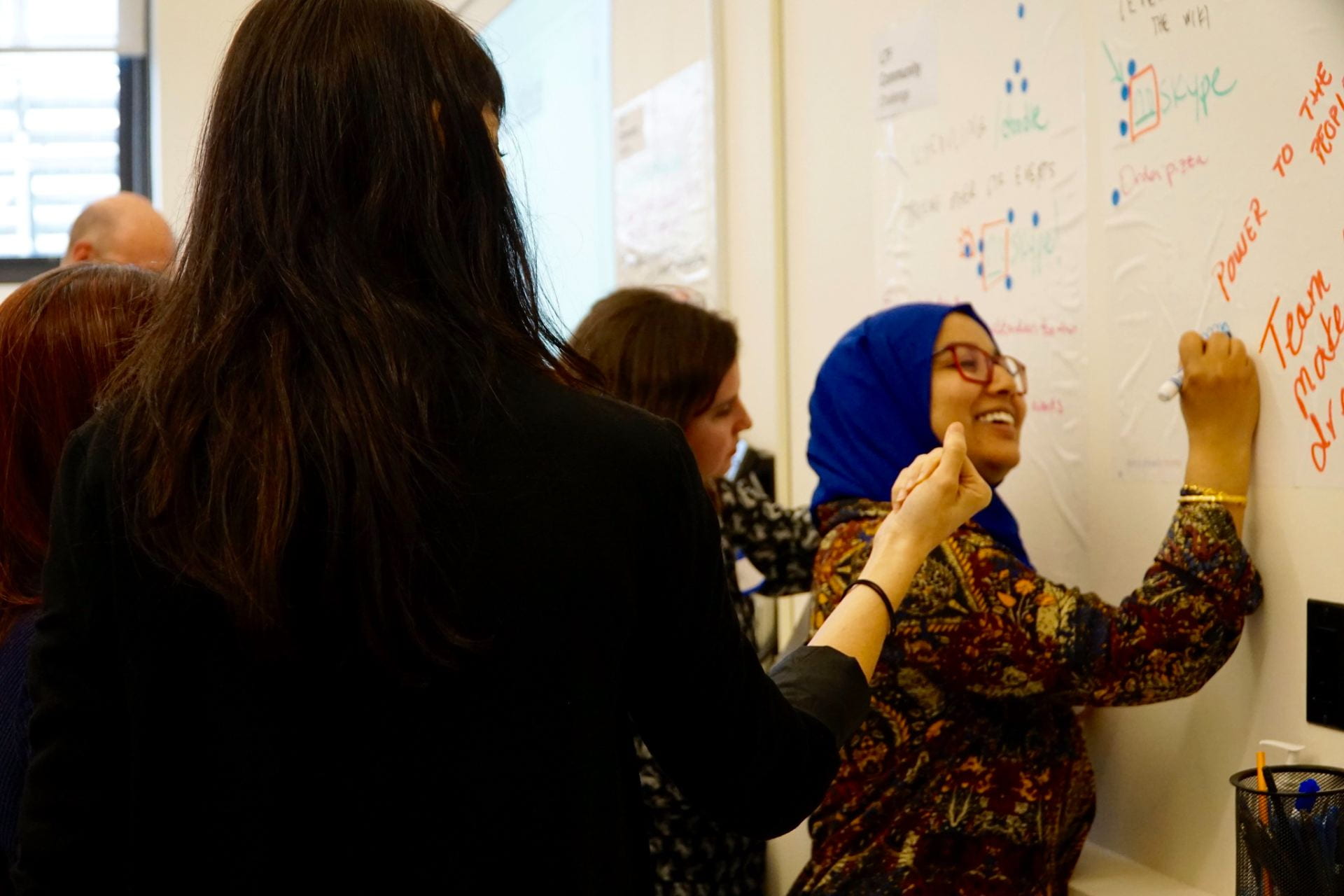Overview
Working with the support of the Center for Teaching and Learning (CTL), Lead Teaching Fellows produce teaching-related events in home departments, advance their own pedagogical development, and facilitate connections between the CTL, other LTFs, Columbia faculty, and graduate student instructors.
Benefits
This fellowship is available to graduate students in good standing who are in years 2 – 7 in a Columbia University doctoral program as of Fall 2024 or are MFA students in the School of the Arts. A call for applications goes out in the spring. After consulting with departmental representatives, CTL sends offers to selected applicants to join the next academic year’s cohort of LTFs.
The program enables:
- Connection of CTL’s support and resources to departmental teaching cultures
- Professional development and recognition for doctoral and MFA students who promote evidence-based instructional practices in their discipline
- Peer-to-peer engagement and mentorship around teaching development
- Cultivation of a robust interdisciplinary teaching support community

Support
Lead Teaching Fellows receive a $2000 stipend for successful completion of all program activities. These activities entail approximately 60 – 70 hours across the academic year, scheduled around academic and other obligations. Stipends are disbursed in two increments, following the fall and spring semesters. CTL is funded to support a fixed set of LTFs, and schools and departments may opt to fund additional qualified applicants, depending on availability of space in the program.
CTL supplies all LTFs with extensive guidance, models of workshops, documentation protocols, and assigned Senior Lead Teaching Fellow mentors.
Many LTF program elements map over to track completion requirements in CTL’s Teaching Development Program, providing momentum for completing a TDP track and earning transcript notation, should LTFs wish to do so.

Activities
Completing all LTF program activities entails a commitment of 30-35 hours per semester. These activities include the following:
- To answer teaching interests and needs among their peers, LTFs design and run workshops in their department (one each semester).
- To deepen their knowledge about pedagogical topics and workshop formats, LTFs attend CTL workshops (three each semester).
- To engage in interdisciplinary community in the program, LTFs attend four program meetings each semester: a semester kickoff with all other LTFS, a meeting with their assigned small group ‘pod’ of fellow LTFs, and two check-ins with their assigned Senior Lead Teaching Fellow mentor.
- To help connect peers and departmental representatives to teaching development resources, LTFs serve as liaisons between CTL and their department.
- To facilitate communication with their STLF mentors, CTL, and current and future LTFs, LTFs document the above activities on the LTF worksite.
LTFs are overseen by CTL and Senior Lead Teaching Fellows. SLTFs are LTF alums who return to the program for a second year to mentor groups of LTFs in interdisciplinary ‘pods’ and produce multi-session Learning Communities attended by LTFs. SLTFs meet individually with each of their assigned LTFs before their workshops run to review design, and again after the workshop to debrief and reflect.
All work by participants in the program is extensively documented on the LTF worksite. This site includes:
- Comprehensive indices of LTF workshops developed over the years by topic and by department
- Details about each LTF’s ‘liaising work’: efforts to assess teaching needs among peers and connect them to CTL and other instructional resources

Program Schedule
- March: Call for LTF applications, CTL application evaluation and ranking
- April: Consultation with chairs, DGSs, and other departmental reps; after departmental endorsement, LTF offers sent
- May: SLTF applications, interviews, and offers
- Summer: Preparation activities for new LTFs, formation of ‘pods’ with new SLTFs
- September: Fall kickoff meetings, liaising guidance
- Fall semester: LTF events, SLTF learning communities, LTF ‘pod’ meetings led by SLTFs
- January: Spring kickoff meetings and reflection, spring event and liaising planning
- Spring semester: LTF events, SLTF learning communities, LTF ‘pod’ meetings led by SLTFs, individual final reports submitted
